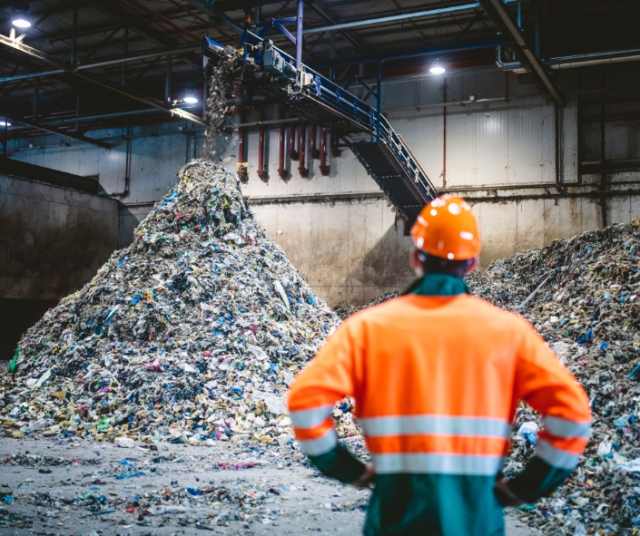Ecuador, a country rich in biodiversity and natural resources, faces significant challenges in waste management. Both waste generated by the population and industrial waste represent a threat to the environment and public health if not managed properly. In this article, we will explore the current situation of waste management in Ecuador and analyze the strategies and measures necessary to move towards a more sustainable and responsible system.
The challenge of waste in Ecuador:
Ecuador, like many other developing countries, faces significant challenges in waste management. Rapid urbanization and population growth have led to an increase in waste generation, both domestic and industrial. Furthermore, the lack of adequate infrastructure and scarcity of financial resources have made efficient waste management throughout the country even more difficult.
Population waste:
Waste generated by the population, also known as domestic or municipal waste, represents a large part of the waste problem in Ecuador. This waste includes a wide range of materials, such as paper, plastic, glass, metal, food, and electronics. If not managed properly, this waste can contaminate soil, water and air, in addition to posing risks to public health.
Strategies for waste management of the population:
The efficient management of waste generated by the population is essential to address the problem of environmental pollution and promote sustainability in Ecuador. Population waste management strategies focus on promoting source reduction, material reuse and recycling to minimize the amount of waste sent to landfills and maximize the sustainable use of natural resources. Below, we'll delve into some key strategies:
Separation at the source:
Separation at the source is a fundamental strategy for managing the population's waste. It consists of separating the different types of waste in the place where they are generated, such as homes, offices and commercial establishments. This allows for more efficient waste management by facilitating its collection, transportation and subsequent treatment. In Ecuador, source separation programs have been implemented in several cities, where containers or bags of different colors are provided to deposit recyclable, organic and non-recyclable waste separately.
Education and public awareness:
Education and public awareness are key components of any effective waste management strategy. Through educational campaigns, school programs and community activities, the population can be informed about the importance of reducing, reusing and recycling waste. Practical advice can be provided on how to separate waste correctly, reduce the consumption of disposable products and choose more sustainable alternatives in daily life. In addition, a culture of environmental responsibility and active citizenship can be fostered, where each individual feels part of the solution to the waste problem.
Incentives for material recovery:
Another important strategy is the implementation of incentives for the recovery of recyclable materials. This may include reward programs, where financial incentives or discounts are given to those who participate in separating and delivering recyclables to recycling centers. Deposit and return systems can also be established for certain types of packaging, such as plastic bottles and aluminum cans, where a deposit is refunded upon returning the empty container.
Promotion of sustainable treatment technologies:
In addition to reduction and recycling strategies, it is important to promote more sustainable waste treatment technologies. This includes the composting of organic waste to produce natural manure, the production of biogas from organic waste through anaerobic digestion processes, and the implementation of waste-to-energy technologies, such as incineration with heat recovery. These technologies not only help reduce the amount of waste sent to landfills, but also generate additional benefits, such as the production of renewable energy and the reduction of greenhouse gas emissions.
Industrial waste:
In addition to the waste generated by the population, Ecuador also faces significant challenges in industrial waste management. Industrial activities, such as manufacturing, mining, and oil production, generate a considerable amount of hazardous and non-hazardous waste that must be treated appropriately to avoid adverse environmental impacts. However, lack of strict regulations and poor enforcement of environmental laws have led to contamination of soils, groundwater and water bodies across the country.
Focus towards sustainability:
To address these challenges, Ecuador must adopt a comprehensive approach to waste management that prioritizes environmental sustainability and social responsibility. This includes the implementation of stricter policies and regulations to control the generation and disposal of waste, as well as the promotion of cleaner production practices and more advanced treatment technologies in the industrial sector. Additionally, significant investments must be made in waste management infrastructure, staff training and environmental education to foster a culture of reduce, reuse and recycling throughout society.
Future challenges and opportunities:
While the challenges in waste management in Ecuador are significant, there are also opportunities for innovation and progress. Growing the recycling sector and creating green jobs, for example, can contribute to the economy while addressing environmental issues. Furthermore, collaboration between the government, the private sector and civil society is essential to move towards a more efficient and sustainable waste management system.
Waste management is a crucial challenge for Ecuador on its path towards environmental sustainability and sustainable development. While there are significant obstacles ahead, there is an opportunity to transform challenges into innovative and sustainable solutions. With a comprehensive approach that addresses both population and industrial waste, Ecuador can move towards a cleaner, healthier and more prosperous future for all its citizens.
